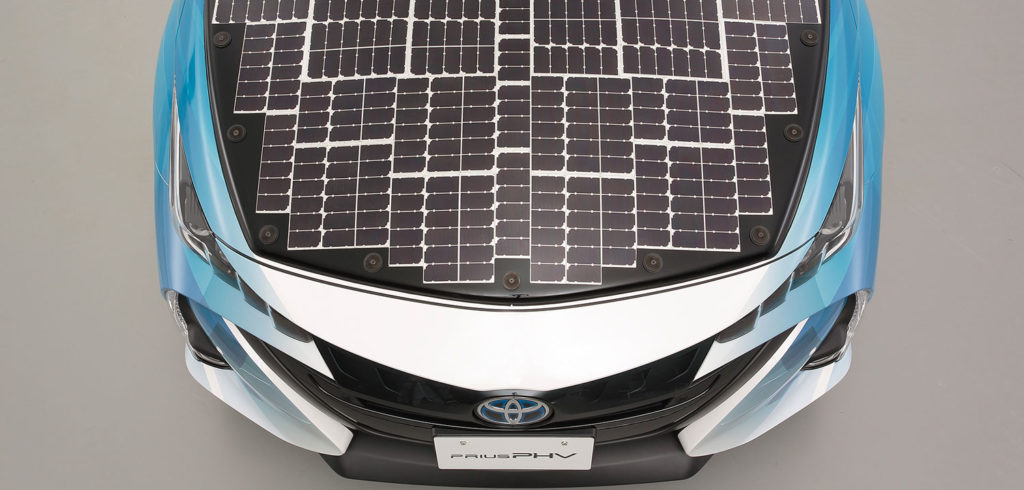Toyota, NEDO (New Energy and Industrial Technology Development Organization) and Sharp Corporation are beginning trials on public roads of their jointly developed electrified vehicle equipped with high-efficiency solar batteries. The aim of the trials is to assess the effectiveness of improvements to cruising range and fuel efficiency.
To facilitate execution of the tests, Sharp modularized its high-efficiency solar battery cells, previously developed for a NEDO-led project, to create an onboard solar battery panel. Toyota installed this panel on the roof, hood, rear hatch door, and other parts of its Prius PHV and has produced a demo car for the road trials.
By enhancing the solar battery panel’s efficiency and expanding its onboard area, Toyota was able to achieve a rated power generation output of around 860W, which is approximately 4.8 times higher compared to the commercial model Prius PHV (equipped with a solar charging system).
In addition to substantially boosting its power generation output, the demo car employs a system that charges the driving battery while the vehicle is parked and while it’s being driven, a development expected to lead to considerable improvements in electric cruising range and fuel efficiency.
The trials will be conducted in various driving conditions in Toyota City, Aichi Prefecture, Tokyo, and other areas. Various data, including the power generation output of the solar battery panel and the amount the drive battery is charged, will be recorded and verified, and then used in the development of an onboard solar recharging system.
Toyota plans to share some of the results with NEDO and Sharp. The photovoltaic-powered Vehicle Strategy Committee, sponsored by NEDO and other entities, will evaluate the benefits based on improvements in CO2 emissions reductions and convenience, such as the number of times a vehicle requires recharging.


